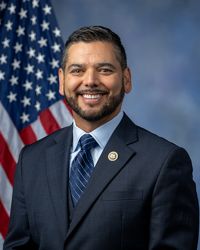0
Building a Health Care Workforce for the Future Act
12/20/2024, 9:06 AM
Summary of Bill HR 4837
One key aspect of the bill is the establishment of grant programs to support the recruitment and retention of healthcare professionals in underserved communities. This includes funding for scholarships, loan repayment programs, and training initiatives to encourage individuals to pursue careers in healthcare in areas with shortages of providers.
Additionally, the bill seeks to improve the cultural competency of healthcare professionals by providing training on how to effectively communicate and provide care to patients from diverse backgrounds. This is crucial in ensuring that all patients receive the care they need and deserve. Furthermore, the bill addresses the need for more healthcare workers in rural and underserved areas by expanding telehealth services and increasing funding for community health centers. This will help to bridge the gap in access to care for individuals living in remote or underserved areas. Overall, the Building a Health Care Workforce for the Future Act is a comprehensive piece of legislation that aims to strengthen the healthcare workforce in the United States and improve access to quality care for all Americans.
Congressional Summary of HR 4837
Building a Health Care Workforce for the Future Act
This bill establishes, within the Department of Health and Human Services (HHS), grant programs for health professional education and training. It also requires the National Academy of Medicine (formerly known as the Institute of Medicine) to study the documentation requirements for cognitive services under Medicare, Medicaid, and private health insurers, including administrative and labor costs of such documentation.
For the first grant program, HHS must award matching grants to states for scholarships to ensure an adequate supply of health professionals. As a condition of receiving scholarships, recipients must agree to work in areas with shortages of health care providers for one year for each year they receive the scholarship.
For the second grant program, HHS must award grants to medical and other health professions schools to improve curricula for, and education and training on, certain priority competencies, such as patient-centered medical homes and chronic disease management. The Advisory Committee on Training in Primary Care Medicine and Dentistry shall select these competencies annually.
For the last grant program, HHS may award grants to medical schools for primary care mentorship programs to support faculty who serve as mentors and encourage interest in primary care among students.
